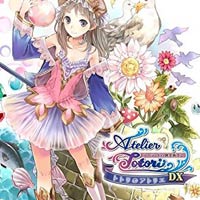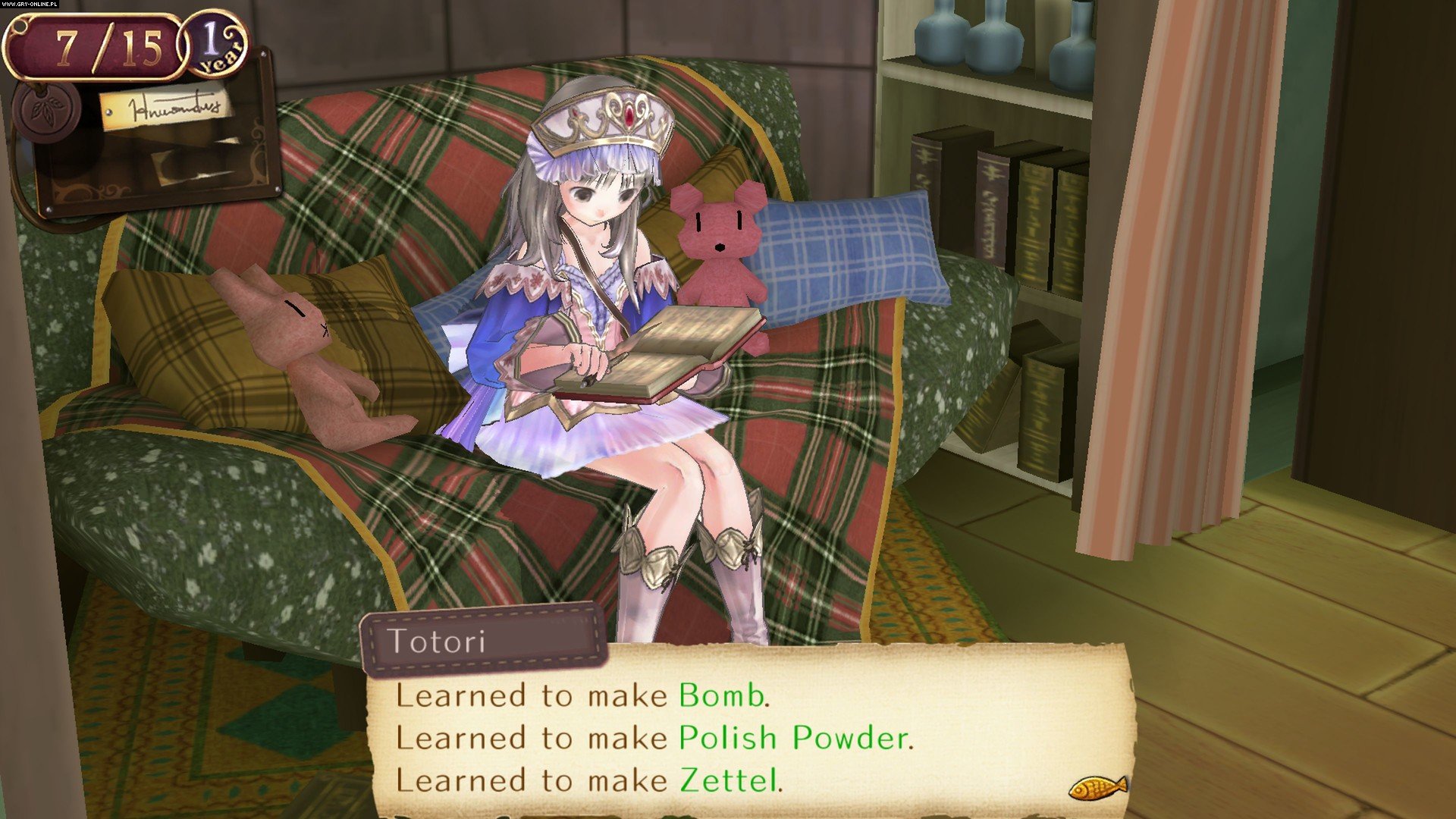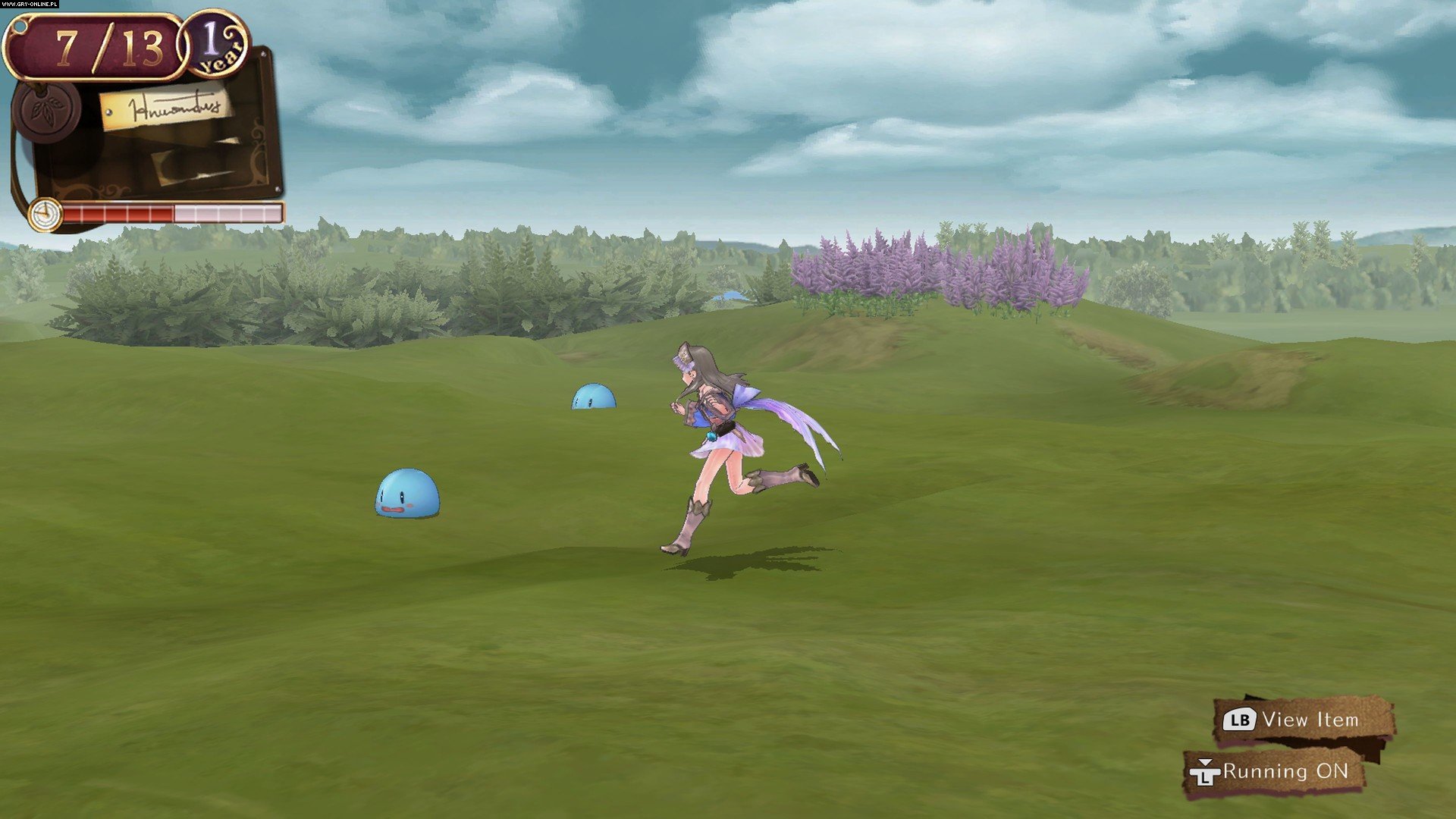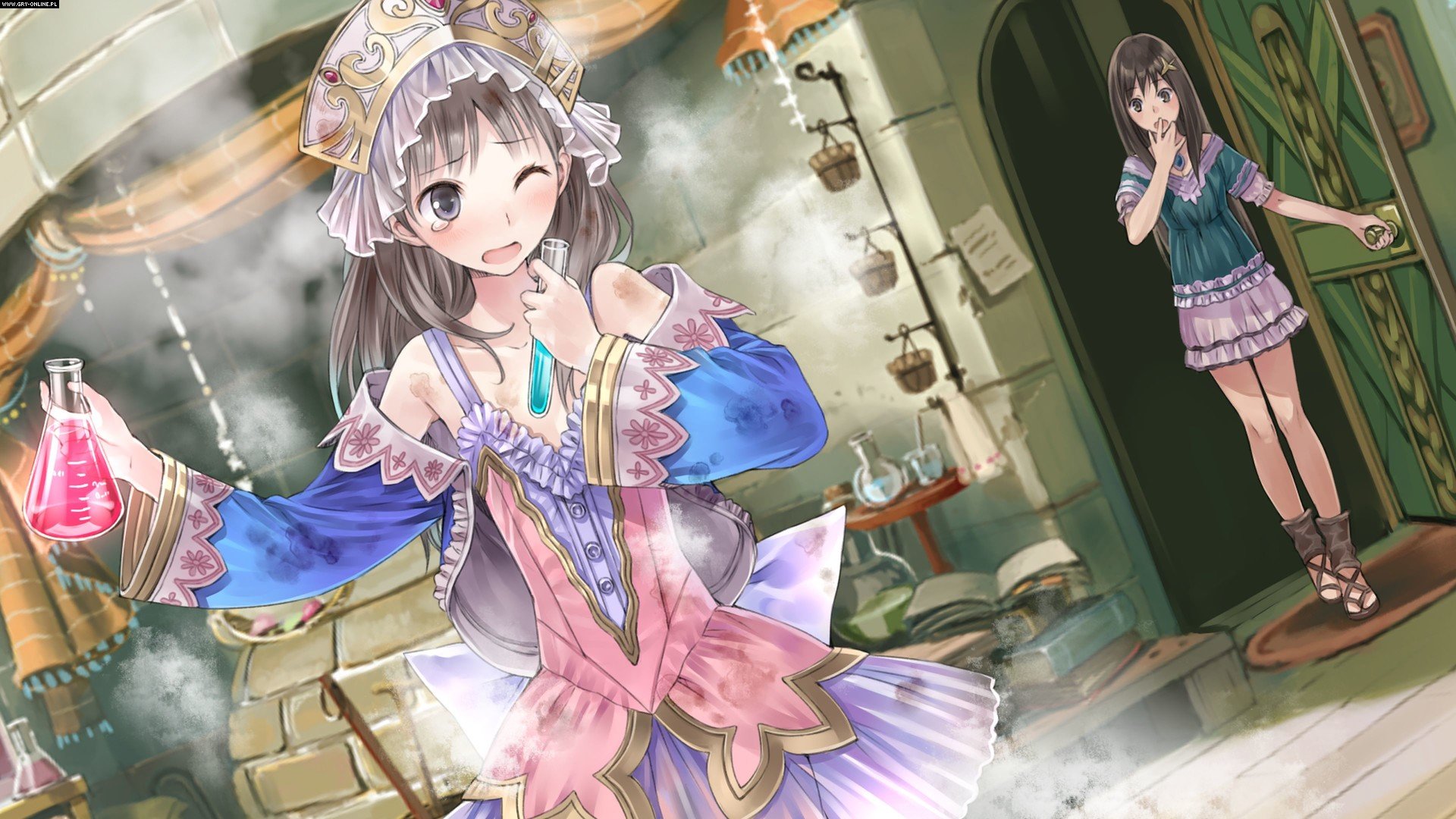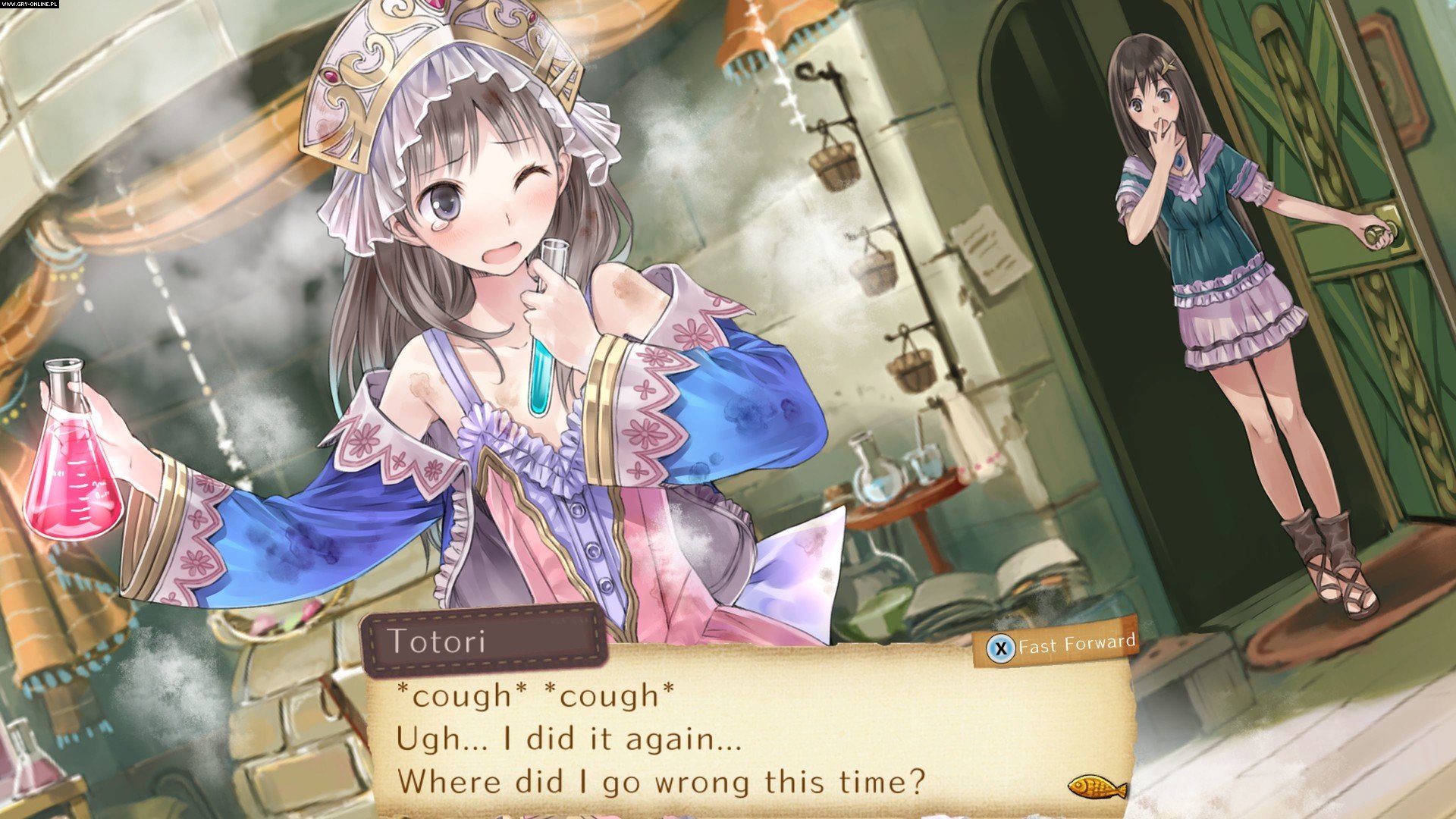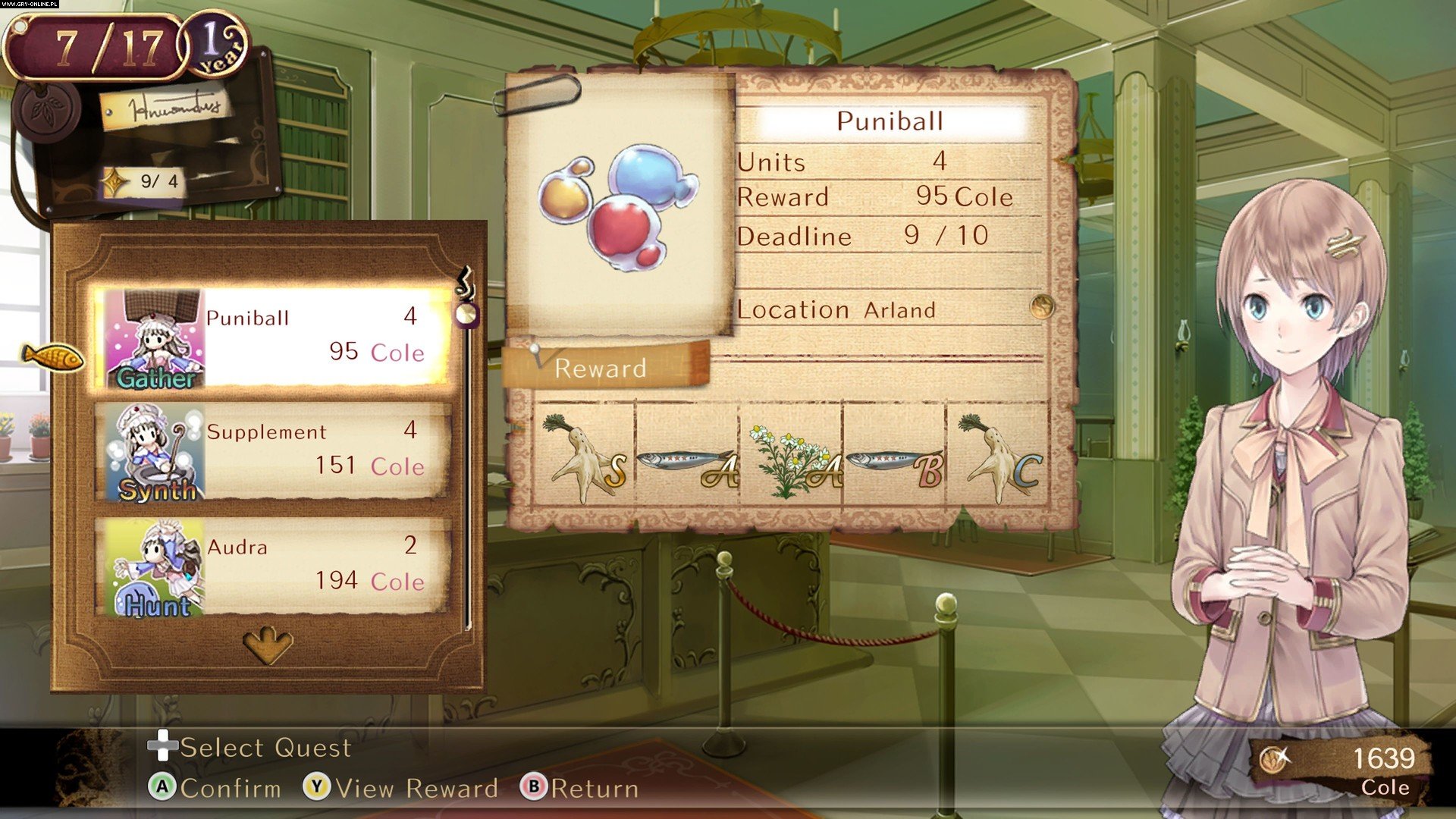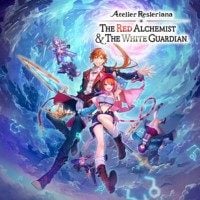The main character of the game is Merurulince Rede (abbreviated to Meruru), a young princess and the only daughter of the ruler of the kingdom of Arls, which neighbours the republic of Arland where the action of the two previous installments took place. Meruru brings Totori to her castle, wanting to learn how to use alchemy from her. Thanks to the skills she has acquired, she intends to help her country and its inhabitants. The main aim of the game is therefore, in addition to performing the alchemical tasks assigned to us, to help expand and develop the kingdom in order to make it as prosperous as Arland.
Mechanics
Thanks to alchemy, which is the most important element of the game, we can perform tasks and learn about the history of Arls. An extensive system of item synthesis is based on combining many ingredients specified in recipes, which we find in the visited locations, acquire from defeated enemies and get as reward for achievements. All components and items created by us have a specific quality and several from hundreds of different properties determining e.g. shape or value, and thus their usefulness in synthesis.
When we achieve certain goals and perform tasks, we get "development points", which we can spend on erecting new buildings or repairing old buildings scattered all over the kingdom, among other things. By developing the infrastructure, we raise the level of our country and encourage new citizens to settle, thanks to which Meruru gains access to new locations, shops and tasks. Many of the quests will be commissioned by the subjects we meet during the game. After listening to their problems, we can go back to the castle and talk to our butler, who will register their request and set the final date for its completion.
One of the important factors that we have to take into account when completing orders is the passage of time. Each activity we perform, be it a journey or a synthesis of new item, take us from half to even a dozen or so days. Most of the tasks have a definite deadline by which we have to perform them, so the game requires us to pay constant attention to the calendar and reasonable planning of our actions.
As in the previous two parts of the game, we initiate combat ourselves, attacking opponents visible in a given location. The skirmishes take place in the standard turn-based system. During the fight, our party of several people can use a number of special skills, attacks, as well as alchemical items created earlier in the workshop, such as bombs or potions.
Technical aspects
Atelier Meruru: The Apprentice of Arland DX doesn't make any major changes to the gameplay model, but offers a lot of bigger and smaller improvements in graphics. DX version also includes all DLCs created with the original in mind, including additional playable characters and an extensive epilogue of the entire story. In addition, the creators added new costumes and accessories for the characters, as well as illustrations and subsequent cut-scenes. As usual in the case of Gust games, a great soundtrack deserves attention.
